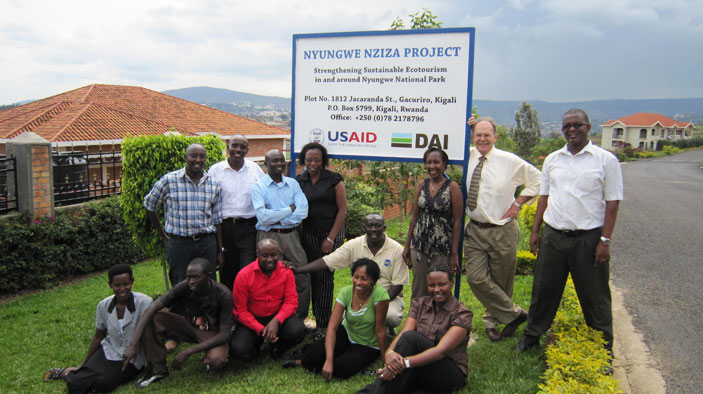Rwanda—Strengthening Sustainable Ecotourism in and around Nyungwe National Park (SSENNP)
Client: U.S. Agency for International Development
Duration: 2010-2015
Region: Sub-Saharan Africa
Country: Rwanda
Solutions: Environment
The project supported the Rwanda Development Board’s (RDB) efforts to improve overall management of the National Park and helped local communities and the private sector engage in ecotourism activities and thereby gain tangible financial benefits from biodiversity conservation efforts in the area.

Select Results
- Created 25,000 days-worth of paid employment for local population, working at cooperatives, renovating park infrastructure, and improving trails.
- Supported five local cooperatives which helped to generate an 846 percent increase in income to target rural population over the life of the project.
- Project activities contributed to a doubling of visitors to Nyungwe National Park over five years, with a 32 percent increase in visitors between 2013 and 2014 alone.
- Implemented comprehensive marketing and public relations strategy, resulting in Nyungwe National Park winning awards from the British Guild of Travel Writers and the Society of American Travel Writers, as well as being one of only two African destinations named to the “Best Trips for 2014” list by National Geographic Traveler.
- Built capacity of 1,456 trainees in natural resource management and biodiversity conservation (46 percent of whom were women) and provided training in tourism management to 1,015 people.
- Used small grants to kick-start community ecotourism ventures and delivered training to groups on how to provide high-quality products and services to visitors (40 percent of trainees and 60 percent of grant beneficiaries were women).
RELATED CONTENT:
Worldwide—Political, Economic & Technical Analysis to Support the Biodiverse Landscapes Fund
DAI carried out a political economy analysis and technical assessment of five transboundary landscapes on behalf of the U.K. Department for Environment, Food & Rural Affairs (DEFRA).
Read More